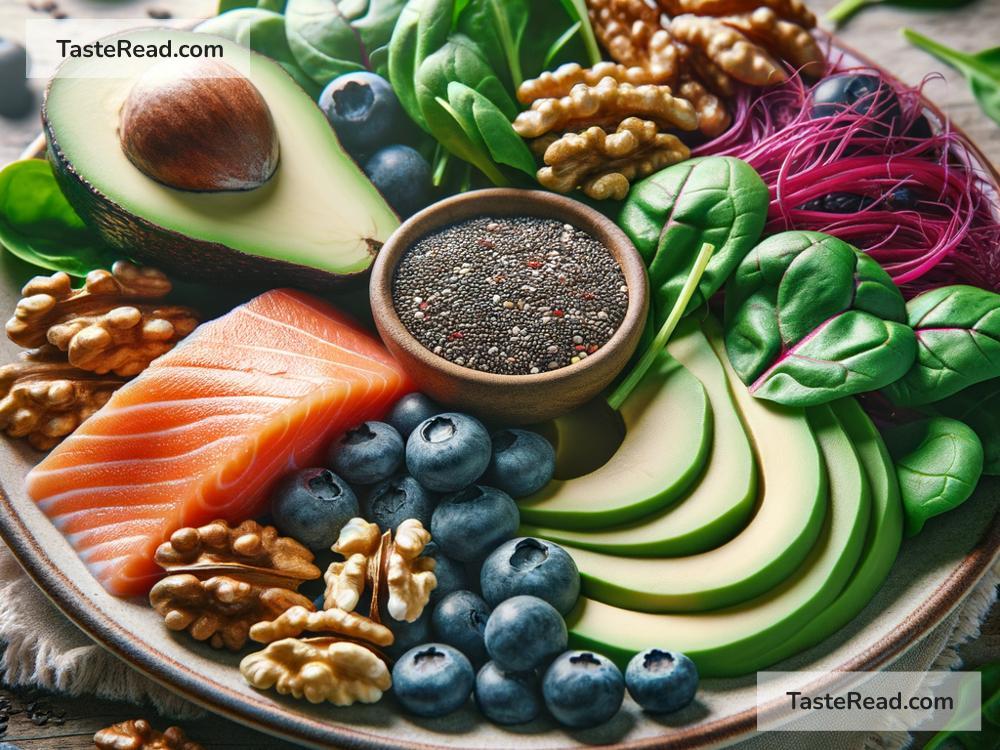Foods That Promote Healthy Nerve Function
Our nervous system is like the electric wiring in a house, carrying messages from our brain to different parts of the body and back. It plays a major role in how we feel, move, and even think. Keeping our nerves healthy is super important. Luckily, the right food choices can help! In this blog, we’ll talk about foods that promote healthy nerve function, so you can include them in your diet and keep your nervous system in top shape.
Why Does Nerve Health Matter?
The nervous system is made up of the brain, spinal cord, and nerves. It controls everything from our movements and thoughts to our ability to feel pain or pleasure. If nerves aren’t working as they should, you might experience tingling, numbness, pain, or even trouble thinking clearly. Supporting your nerves with the right nutrients can help prevent these issues.
Key Nutrients for Nerve Health
Before diving into foods, let’s look at the nutrients that help your nervous system thrive. These include:
- B Vitamins: Essential for nerve repair and proper function. Vitamin B12 and B6 are particularly important.
- Magnesium: Helps nerves transmit signals smoothly.
- Omega-3 Fatty Acids: Supports nerve structure and reduces inflammation.
- Antioxidants: Protect nerves from damage caused by free radicals.
- Vitamin E: Keeps the protective coating around nerves healthy.
- Potassium: Ensures proper communication between nerves and muscles.
By eating foods rich in these nutrients, you can build a diet that supports your nervous system.
Foods That Boost Nerve Function
Here’s a list of delicious and healthy foods that promote nerve health:
1. Fish
Fish like salmon, mackerel, sardines, and tuna are packed with omega-3 fatty acids. These healthy fats are like building blocks for your nerves, helping maintain their structure and prevent damage. Omega-3s are also great for brain health and can improve memory and focus.
2. Nuts and Seeds
Almonds, walnuts, flaxseeds, and chia seeds are rich in vitamin E and healthy fats. Vitamin E protects the sheath covering your nerves and reduces oxidative stress, which can damage nerve cells. Nuts and seeds also contain magnesium, which is crucial for nerve signaling.
3. Leafy Greens
Spinach, kale, and Swiss chard are loaded with vitamins B6, B12, and folate—all of which are essential for nerve repair and function. Leafy greens also contain antioxidants that protect your nerves from damage caused by toxins.
4. Eggs
Eggs are a great source of vitamin B12, which improves nerve health and keeps your brain sharp. If you’re vegetarian or vegan, make sure to include B12 supplements or fortified foods in your diet.
5. Whole Grains
Foods like brown rice, oats, quinoa, and whole-grain bread provide magnesium and B vitamins. Magnesium helps nerves function smoothly by relaxing muscles and supporting nerve communication.
6. Avocados
Avocados are a superfood for nerves! They contain healthy fats, vitamin E, and potassium, which are essential for maintaining the balance of signals between nerves and muscles.
7. Sweet Potatoes
Sweet potatoes are rich in vitamin B6 and potassium. They also contain antioxidants like beta-carotene, which protect nerves from harmful free radicals.
8. Dark Chocolate
Yes, chocolate can be nerve-friendly—if you choose dark chocolate! It’s high in antioxidants and magnesium, which support nerve health. Just remember to eat it in moderation to avoid excess sugar.
9. Bananas
Bananas are a great source of potassium, a mineral that helps nerve signals flow properly. They’re also a convenient snack if you’re on the go.
10. Yogurt
Yogurt is rich in calcium and magnesium, which help calm your nerves and aid proper connection between your nerves and muscles. Choose plain or Greek yogurt for maximum benefits and avoid sugar-laden versions.
11. Turmeric
Turmeric contains curcumin, an antioxidant that reduces inflammation in the body. This spice can help protect your nerves and improve recovery from any damage. Add turmeric to your cooking, or mix it into a cup of tea.
12. Beans and Lentils
These legumes are packed with B vitamins, magnesium, and protein—all important for nerve repair and energy production. They’re also high in fiber, making them great for overall health.
Hydration Is Key, Too!
Along with eating healthy foods, make sure you drink enough water. Dehydration can slow down nerve signals and lead to muscle problems. Herbal teas and coconut water are also great options for staying hydrated.
A Balanced Diet for Nerve Health
The key to supporting your nervous system is eating a variety of nutritious foods. A diet rich in whole grains, fresh fruits, vegetables, healthy fats, and lean proteins can provide all the essential nutrients your nerves need to stay healthy.
It’s also important to avoid foods that can harm nerve health. Limit your intake of processed foods, sugary drinks, and excess alcohol, as they can lead to inflammation and nerve damage over time.
Conclusion
Your diet plays a big role in your overall health, including the function of your nervous system. By choosing foods rich in vitamins, minerals, and healthy fats, you can support your nerves and help prevent issues like pain, numbness, or poor memory. Start adding some of the foods we’ve discussed into your daily meals, and your nerves will thank you!
Healthy nerves mean a healthier, happier you—so eat well and stay strong!


